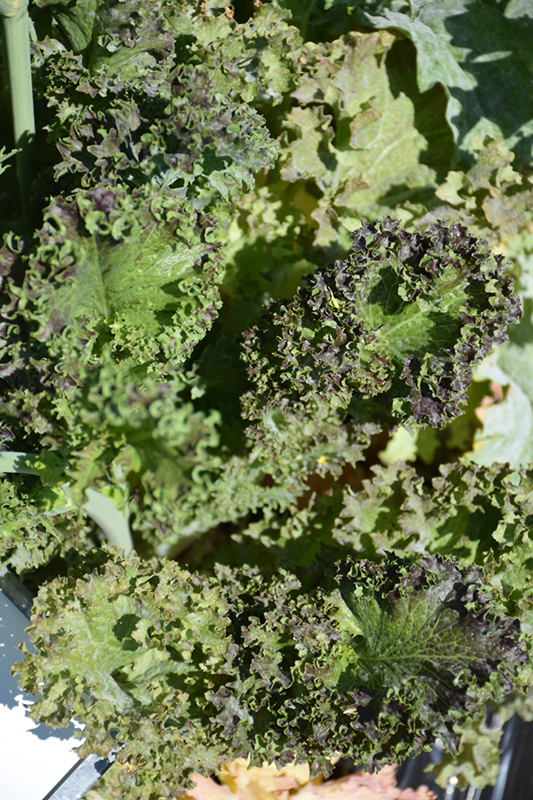Purple Wave Mustard
Brassica juncea 'Purple Wave'
Height: 18 inches
Spacing: 6 inches
Sunlight:
![]()
![]()
Hardiness Zone: (annual)
Description:
This high yielding variety produces beautiful green and purple frilly edible leaves; young leaves add a spicy kick to salads, while mature leaves mellow when cooked; prefers mild and cool temperatures; best planted in spring or late summer
Edible Qualities
Purple Wave Mustard is an annual vegetable plant that is commonly grown for its edible qualities. The crinkled oval green leaves with showy purple variegation are usually harvested from late spring to late summer. The leaves have a spicy taste.
The leaves are most often used in the following ways:
- Fresh Eating
- Eating When Cooked/Prepared
- Cooking
Planting & Growing
Purple Wave Mustard will grow to be about 18 inches tall at maturity, with a spread of 12 inches. When planted in rows, individual plants should be spaced approximately 6 inches apart. This fast-growing vegetable plant is an annual, which means that it will grow for one season in your garden and then die after producing a crop. Because of its relatively short time to maturity, it lends itself to a series of successive plantings each staggered by a week or two; this will prolong the effective harvest period.
This plant is typically grown in a designated vegetable garden. It does best in full sun to partial shade. It does best in average to evenly moist conditions, but will not tolerate standing water. It may require supplemental watering during periods of drought or extended heat. It is not particular as to soil pH, but grows best in rich soils. It is somewhat tolerant of urban pollution. This is a selected variety of a species not originally from North America.
Purple Wave Mustard is a good choice for the vegetable garden, but it is also well-suited for use in outdoor pots and containers. It is often used as a 'filler' in the 'spiller-thriller-filler' container combination, providing the canvas against which the larger thriller plants stand out. Note that when growing plants in outdoor containers and baskets, they may require more frequent waterings than they would in the yard or garden.

